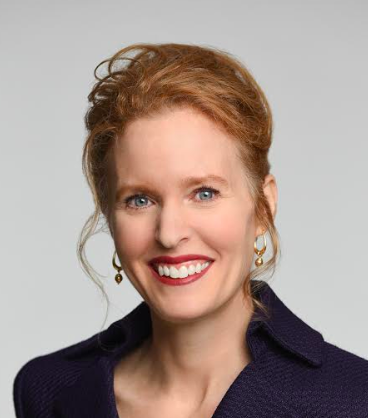
Tourists try to stay dry in a flooded St Mark’s Square in Venice, Italy, in 2018. Flooding in the region has only intensified in recent years.
It has become de rigueur for companies eager to reduce their climate-related disaster risks to sign up with groups that focus on assisting corporate clients with their climate change challenges.
The Science Based Targets initiative (SBTi), for one, helps the private sector set science-based emissions reduction targets. It’s a partnership between CDP, the United Nations Global Compact, the World Resources Institute and the World Wide Fund for Nature (WWF). Another, the Task Force on Climate-Related Financial Disclosures, offers guidelines for how companies can report their exposure to physical climate-related risks, among other things.
The assistance these groups provide is timely. The U.S. Securities and Exchange Commission (SEC), which protects investors and regulates publicly-held companies’ disclosures, is considering rules to require public companies to provide climate risk-related financial data. And most (if not all) U.N. agencies and other international climate change-related programs recognize the need to address disaster risks and other forms of climate risk worldwide.
But do these groups follow climate science? That question arose last month when a distinguished engineer openly questioned climate science in a presentation to the U.N. Disaster Risk Reduction Private Sector Alliance for Disaster Resilient Societies (ARISE) and its growing membership of U.S. corporate leaders. “We don’t know if climate change is happening now, and we don’t know if it will happen in the future,” he contended.
Peruse any legitimate climate source, and it’s nigh impossible to question climate science, whether our planet is warming and the effects of greenhouse gas emissions. The U.N. has a growing set of resources, among them:
- Race to Resilience, a global campaign that convenes non-government actors to build climate resilience in vulnerable communities.
- The A2R U.N. Climate Resilience Initiative, a global multi-stakeholder effort to strengthen climate resilience for vulnerable countries and people.
- U.N. Environment Program (UNEP) online course on Nature-based Solutions for Disaster and Climate Resilience, which has extended nature-based solutions certificates to more than 60,000 leaders worldwide.
- New Urban Agenda’s World Cities events, with “Adapting Cities for Climate Resilience” themes
- Annual agreements from the U.N. Conference of the Parties, of which the Paris Climate Agreement is the best known
As the U.N. plainly asserts: "It is unequivocal that human influence has warmed the atmosphere, ocean and land. Widespread and rapid changes in the atmosphere, ocean, cryosphere and biosphere have occurred."
ARISE, whose U.S. arm I co-chair, follows the Sendai Framework for Disaster Risk Reduction. The latest documents of the Framework — the 2015 U.N.-adopted document that calls for assessing and reporting progress on disaster-reduction plans — emphasize that disaster risks “are growing at an unprecedented rate globally, inflicting damage across sectors and vital systems for human societies and economies.”
It also maintains: “We are living outside the boundaries of what our planet can sustain, to the detriment of future generations. Radical shifts are needed to change course toward a more sustainable and risk-informed pathway, as the world is facing a projected 40 percent increase in disasters during the lifetime of the Sendai Framework to 2030.”
The Framework cites climate change on over half of its 140 pages, and the No. 1 commitment of the U.N. Plan of Action on Disaster Risk Reduction for Resilience is to take a risk-informed approach.
We must also heed another distinguished engineer, U.N. Secretary General António Guterres, who earned a degree in the field from the Instituto Superior Técnico in Portugal back in 1949. “Greenhouse gas emissions keep growing, global temperatures keep rising, and our planet is fast approaching tipping points that will make climate chaos irreversible,” he told CNBC last year. “We are on a highway to climate hell with our foot still on the accelerator.”
And we must promote companies looking to the SBTi and others for assistance in mitigating disaster risks. Onward with this important work!
Image credit: Jonathan Ford/Unsplash

Joyce Coffee, LEED AP, is founder and President of Climate Resilience Consulting. She is an accomplished organizational strategist and visionary leader with over 25 years of domestic and international experience in the corporate, government and non-profit sectors implementing resilience and sustainability strategies, management systems, performance measurement, partnerships, benchmarking and reporting.














